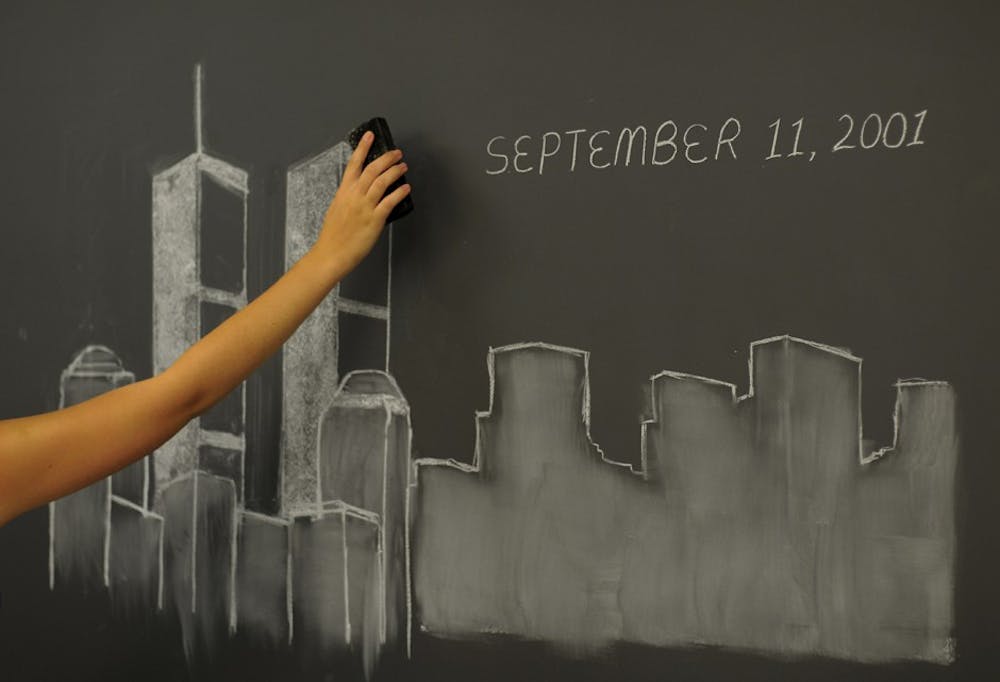As the events of 9/11 recede further into the past, educators are debating how to best present the historical event to college students who grew up with it and younger students who have little memory of the day.
Though some school systems and parents are reluctant to bring Sept. 11 into the classroom, Graduate School of Education visiting professor Frances Rust believes the sensitive topic should be tackled.
“We should look for opportunities for people to educate themselves beyond the experience they had as children … the more knowledgeable you are, the more likely you are to be a responsible world citizen,” said Rust, an expert in early childhood and teacher education.
She recommends beginning with sharing personal experiences that can connect to a larger narrative, followed by pairing critical facts with these shared experiences.
“Once the stories are out and people have made connections with each other, we can then move on to the bigger picture,” she said. “As educated adults, we must start to move from the personal story to the global context.”
However, “the curriculum cannot be one size fits all. Children at different ages and stages process things differently,” said Communications professor Amy Jordan, an expert on children and media.
While younger children need to be reassured that the world has since become safer, middle-school students can start accepting more abstract ideas such as terrorism and tolerance. College students are able to think abstractly and can develop a different perspective of the event than when they were children, she said.
Penn’s Political Science department offers several classes about terrorism and national security, the politics of war, Islam and constitutional law — which all touch on 9/11.
Political Science professor Michael Horowitz, who teaches a class called “War, Strategy, and Politics,” includes a unit on Sept. 11 in his class, which does not contain “politically sensitive material that would be troubling to a student.”
He added that in his experience, college students are able to handle the material both emotionally and academically.
However, there are challenges to including topics such as Sept. 11 in the curriculum. “It’s hard to get into substantive issues like these,” Rust said, when “there is so much pressure to get kids passing tests.”
Rust added she would like to see a teach-in at Penn, where students can learn the political and historical implications beyond the emotional day.
Jordan said that in the past, Penn has held panel discussions about the events.
“If students are interested, then Penn certainly has the expertise to follow through on it,” she said.
Wharton sophomore Daniel Ortiz agreed that his peers should pay extra attention to the significance of the events.
“Places like Penn especially, which promote a multicultural and accepting atmosphere should use 9/11 as a reminder that in the end, we’re all just fighting to be free,” he said.
“We’re getting to a point where we can see things in perspective,” said Rogers Smith, a Political Science professor who uses the Sept. 11 attacks to provide context for his class “Constitutional Law.”
“It’s time now to think more fully about the wide-ranging significance,” he said.



 Read more in the series »
Read more in the series »